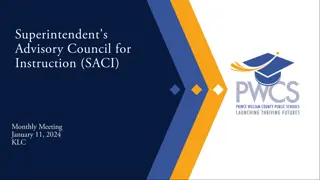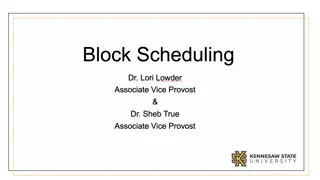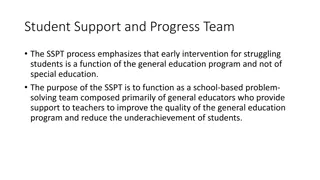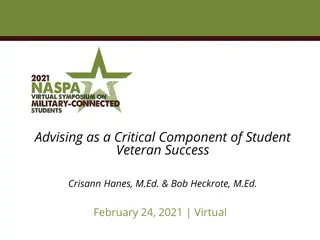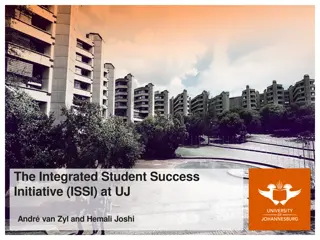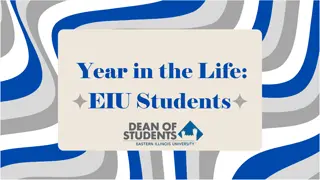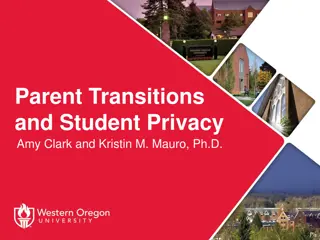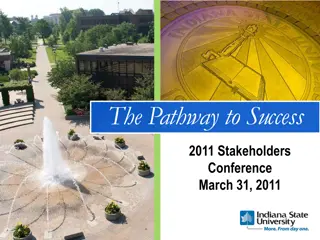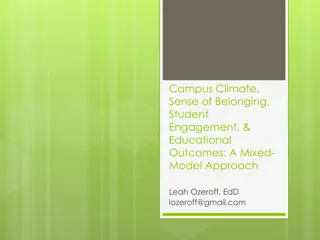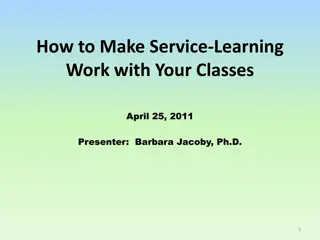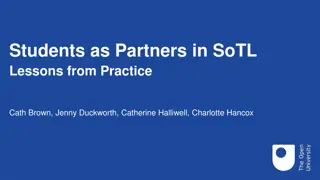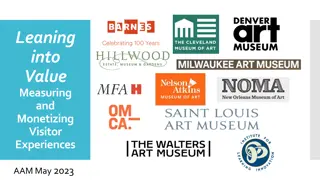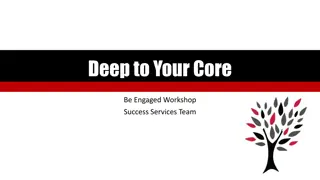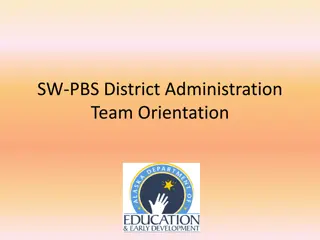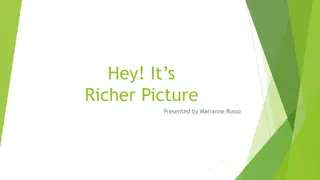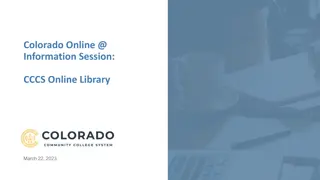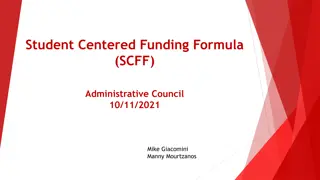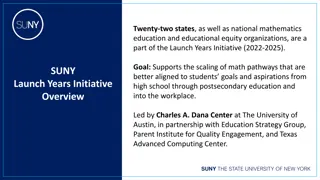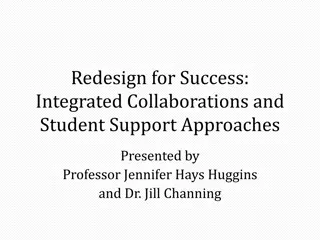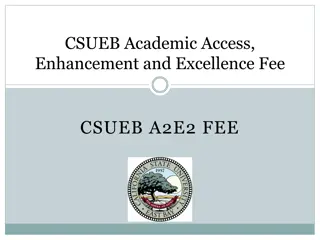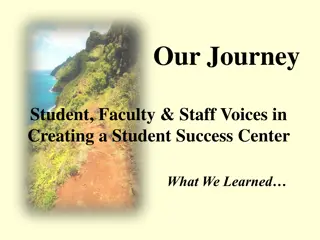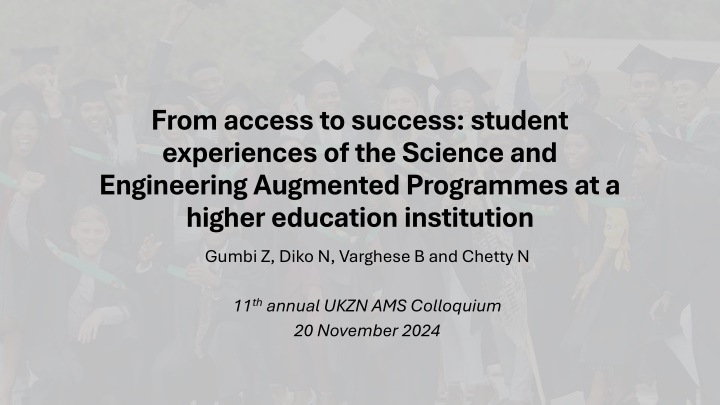
Extended Curriculum Programmes in Science and Engineering at UKZN
Explore the educational landscape in South Africa, focusing on challenges faced by historically disadvantaged students in accessing higher education. Learn about the impact of Extended Curriculum Programmes at UKZN in addressing these issues through alternative academic routes.
Download Presentation

Please find below an Image/Link to download the presentation.
The content on the website is provided AS IS for your information and personal use only. It may not be sold, licensed, or shared on other websites without obtaining consent from the author. If you encounter any issues during the download, it is possible that the publisher has removed the file from their server.
You are allowed to download the files provided on this website for personal or commercial use, subject to the condition that they are used lawfully. All files are the property of their respective owners.
The content on the website is provided AS IS for your information and personal use only. It may not be sold, licensed, or shared on other websites without obtaining consent from the author.
E N D
Presentation Transcript
From access to success: student experiences of the Science and Engineering Augmented Programmes at a higher education institution Gumbi Z, Diko N, Varghese B and Chetty N 11thannual UKZN AMS Colloquium 20 November 2024
The history of education in South Africa Separate education systems for Coloureds and Indians South Africans Schools Act Bantu Education Act Soweto Student Uprising 1953 1959 1963 1974 1976 1994 1996 1997 Extension of University Education Act Afrikaans Medium Decree Apartheid ended White paper three: a programme for transformation of higher education PAST PRESENT Inclusion and access govern modern day education policies. Segregation, exclusion and limited access governed education policies.
Characteristics of students coming from historical disadvantages Socioeconomic disparities make it difficult to access higher education Underprepared due to inadequate schooling
Current state of education in SA Access Challenges in Higher Education in SA Low throughput rates High dropout rates
Introduction of Extended Curriculum Programmes Address challenges faced by students due to historical disadvantages Alternative academic route for under- prepared students
What is an extended curriculum programme? A degree or diploma that is extended or augmented by the addition of certain components, courses or modules. At UKZN, the College of Agriculture, Engineering and Science offers two ECP models for science and engineering qualifications.
ECPs at UKZN, CAES Engineering Access Programme 5 years Science Access Programme 4 years Year 1: Year 1: Augmented Maths and Physics modules as well as semester augmented engineering drawing, communications, materials and design courses Augmented modules as well as life skills and scientific communication courses Year 2: Year 2: Augmented year Maths and Physics modules as well as semesterised mainstream modules Augmented modules as well as core L1 modules relevant to students stream of interest
Performance of ECPs within the CAES Comparable graduation rate when compared to mainstream BSc Concern regarding exclusion rates which are much higher than that of mainstream Drop out rates are quite similar it is important to consider that dropouts also include students who changed courses. Cohorts Figure 1. Comparison of graduation, exclusion, drop out and continuing rates obtained by the 2016 to 2019 BSCA and BSc cohorts.
Performance of ECPs within the CAES Graduation rates are higher for mainstream; however, 2017 cohort was quite comparable to mainstream High number of continuing students from 2018 and 2019 cohorts (N+2 and N+1) High exclusion rates when compared to mainstream Cohorts Figure 2. Comparison of graduation, exclusion, drop out and continuing rates obtained by the 2016 to 2019 ENGPEAand BSc Engineering cohorts.
Aim This study aims to evaluate the effectiveness of the SAP and EAPs in preparing students for mainstream education by analysing student experiences and voices. Through this analysis, the research seeks to identify programme strengths and areas for improvement, examine how student engagement evolves over time, and determine ongoing support needs throughout students' degree progression.
Research Questions 1. How do students perceive the effectiveness of our augmented programmes in preparing them for mainstream courses? 2. How does student engagement with augmented programme evolve over time and what influences these changes? 3. What ongoing support do students identify as they progress through their degree programmes? 5. How to students' perceptions of their readiness for mainstream courses change throughout and after their participation in the augmented programme? 4. To what extent does the augmented programme address students 'specific academic challenges and individual circumstances?
Methodology and Sampling Population: Students who are currently enrolled in our SAP and EAPs have transitioned from augmented modules to mainstream modules Sampling method: Purposive sampling Sample size: 20-30 participants Data collection: Interviews using open ended questions Focus group interviews (if required)
Theoretical Frameworks to consider in this study: 1. OPPORTUNITY GAP THEORY Opportunity gap theory to analyze impact of Bantu Education Act and its enduring consequences. Disparities in educational outcomes are a result of systemic inequities rather than individual or community failings
Theoretical Frameworks to consider in this study: 2. SCHLOSSBERG S TRANSITION THEORY Allows for understanding of how individuals cope with transitions in their lives 4S system is used to understand the transitions that students experience and help with navigating their journey throughout higher education Situation Self Support Strategies Persons situation at the time of transition Personal and demographic characteristics Type of support and functions served by this support Coping responses and coping modes
What do we hope to achieve with this study? Understand student s perceived effectiveness of the science and engineering augmented programmes in preparing them for mainstream modules Understand the various challenges encountered during the transition to mainstream modules Understand how our students 'perceive the impact of our support programmes Be informed of any support that is required, but not yet offered Overall, improve the augmented programme to result in a holistic programme that adequately prepares students for a smooth transition into mainstream modules and support them throughout the duration of the programme

